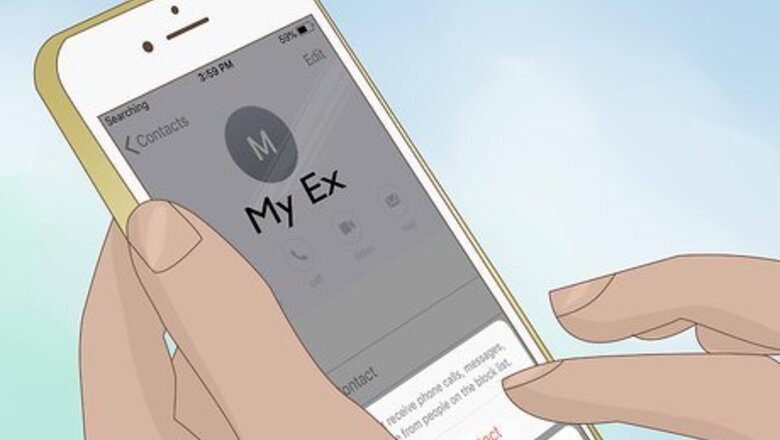
views
Changing Your Focus Right After a Breakup

Cut off all communication with your ex so you can focus on other things. Unfollow or unfriend your ex on social media so you won’t see what they post. Also, don’t contact them via text, email, or phone. This will help to prevent you from focusing on them, which could become an unhealthy habit. If you need to keep some contact with your ex while you transition out of a shared residence or because you have children together, keep all communications brief and civil. Stick to the basic details you need to communicate. Reader Poll: We asked 36 readers who've recently dealt with heartache, and 75% of them agreed that it's best to take a break from social media following a breakup, rather than continuing to scroll, post, and search your ex's page. Take Poll.

Remove anything in your life that might remind you of them. Put all of your ex’s things into a box and ask a friend to return the items to them. You can also place any items that remind you of your ex into a box and store them somewhere out of sight. If this is difficult for you to do, ask a friend to help you. For example, if you have pictures of your ex, gifts they bought you, or even sentimental items that remind you of them, place these into the box.
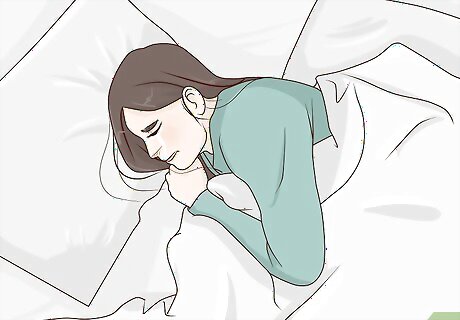
Allow yourself to feel sad and grieve over losing the relationship. If you’ve recently broken up with your ex, it’s normal and acceptable to be sad about it. Let yourself cry about it, lay around in bed, watch sad movies, or do whatever else helps you to grieve. Don’t try to ignore your feelings. It’s important to feel them in order to move on. Try to limit this grieving period to 2-4 days, then get yourself up and out to do something that will distract you.Tip: Keep in mind that you may not feel quite like yourself right after a breakup, and this is normal. Cut yourself some slack and try to do a little less for the first week.

Reflect on the relationship so you can make improvements to future ones. Another good way to process your feelings and shift the focus to yourself after a breakup is to think about what killed the relationship. While these things may have been out of your control, it can help you to reflect on them and think about how you might avoid a similar situation in future relationships. For example, you might note that part of the reason why you and your ex broke up is that you had different life goals. This could tell you that you might have a more successful relationship with someone who shares your goals. Or, you might note that your relationship troubles resulted from having different communication styles and want to find someone in the future who communicates differently than your ex did.
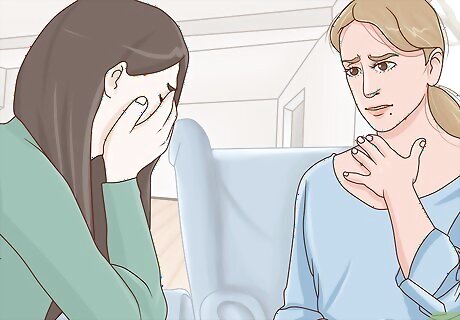
Talk with a trusted friend or family member about how you’re feeling. Talking through how you’re feeling can also be a helpful way to move forward, so you might ask a friend or family member to meet up with you when they have time to listen. Choose someone who is trustworthy and who will listen carefully and respond in a supportive way. Also, make sure that the person is not someone who might feel awkward discussing your breakup with you, such as a mutual friend of your ex. Avoid asking friends and family who still have contact with your ex to tell you how they’re doing. This can put you back into a cycle of focusing on your ex instead of yourself.
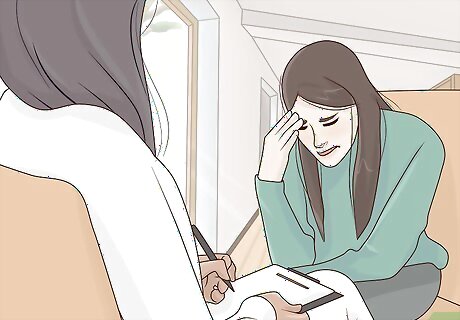
Find a therapist to help you if you’re struggling. Therapy can help you to develop new tools for dealing with your emotions and it can also give you a safe space to vent about the breakup. If you can’t seem to stop feeling sad about your ex or focusing on them after 2 weeks, find a licensed therapist or counselor who can help you. If you’re in school, you could also ask to meet with a school counselor.
Finding Positive Distractions
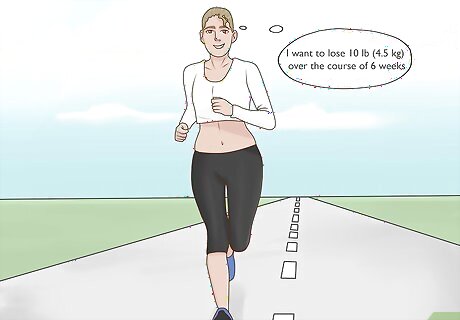
Identify a meaningful goal for your personal, social, or work life. Setting a goal can give you something positive to focus on and take your mind off of your ex. This goal could be related to your health, career, grades, spiritual life, or something else. As long as the goal is meaningful to you, it can be anything you want. Make sure to start small and be as specific as possible about what you want to accomplish. For example, instead of setting a goal to lose weight, you might say, “I want to lose 10 lb (4.5 kg) over the course of 6 weeks.”
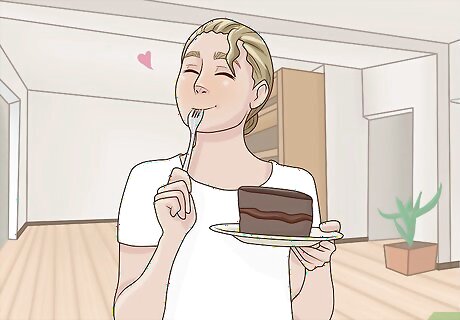
Treat yourself to something special to take your mind off the situation. While indulging yourself after a breakup can be a little dangerous, it might help you to feel better. Treating yourself might mean buying yourself a gift that you've wanted for a while, eating a piece of cake, going for a hike, seeing a movie, booking a salon treatment, or playing a round of mini golf with friends. Anything that you consider a treat and that will make you happy is fine. If you plan to buy something or do something that costs money, try setting a limit on how much you’ll spend. This may be helpful if you’re worried about overdoing it.Tip: If you can’t afford to spend any money right now, plan a special activity for yourself at home, such as a home spa day where you take a long bath, do a homemade face mask, and give yourself a manicure.

Take up a new hobby or learn a new skill. Learning something new is a great way to take your mind off of other things. Choose something that you are genuinely interested in and make learning about it your sole focus for a set amount of time each day. If you need more structure, consider taking a class at your local community college or online. For example, if you have always wanted to learn how to play guitar, follow along with online videos, take private lessons, or enroll in a class. If you’re interested in learning a new language, download a language app, listen to a podcast on learning the language, or take a course.
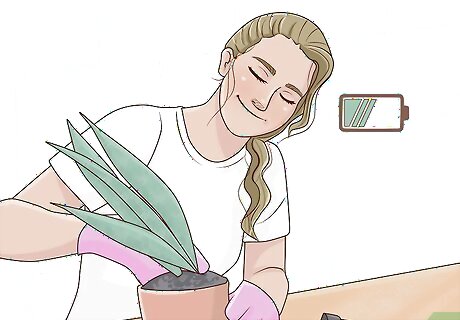
Channel your energy into something productive to improve your life. Identify something you can do that will make your life better and do it. This could be a simple task that you’ve been putting off or something bigger you need to take care of. For example, now’s the perfect time to tackle that leaky faucet in your kitchen, repot your houseplants, or develop a better filing system for your bills.
Taking Good Care of Yourself
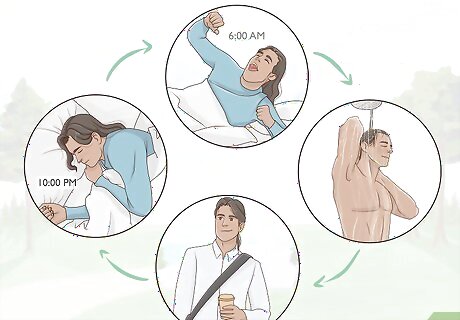
Develop and maintain a daily routine for yourself. Try to wake up and go to bed at the same time each day and do things in roughly the same order each day. Keeping the same basic routine every day may help you to stay grounded and focused. For example, after you wake up you might take a shower, get dressed, go to school or work, and then hit the gym.

Add some physical activity to your daily life. Regular cardiovascular physical activity is good for you and it can also help you to feel happier in general. Strive for 30 minutes of exercise on 5 days of the week, and make sure that you do something you enjoy. This will help to increase the chances that you’ll stick with it. For example, if you enjoy going on walks outdoors, take a walk around your neighborhood on most days. If you’re a fan of soccer, join an inter-mural soccer league at your local gym.
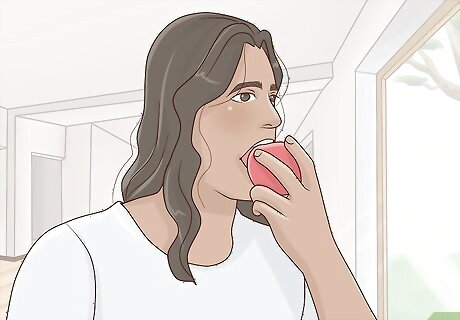
Adopt a healthier diet to promote better health and energy levels. Eating lots of unhealthy food can affect your mood and leave you feeling unhealthy and tired. To prevent this, eat a diet based on fruits, vegetables, whole grains, and lean proteins. Stick to whole foods and steer clear of fried, sugary, processed, and packaged foods as much as possible. If you’re new to healthy eating, start by replacing one unhealthy item in your daily diet with a healthy alternative. For example, if you usually eat a bag of potato chips for an afternoon snack, try switching to apple slices. Make sure that you don’t use food as a coping mechanism after your breakup. If you overeat or find yourself turning to junk food in the first few days after a breakup, that’s okay. However, if it becomes a regular habit, this can lead to weight gain and poor health.
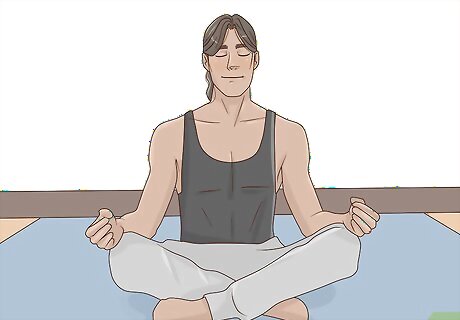
Use a relaxation technique daily to manage stress. It’s normal to feel stressed after a breakup, but there are ways you can reduce your stress levels and keep them in check. Choose a relaxation technique that you find helpful and set aside at least 15 minutes every day to use it. Some relaxation techniques you might find helpful include: Deep breathing Yoga Progressive muscle relaxation MeditationWarning: Avoid turning to unhealthy habits like drinking, smoking, and drugs. These vices may make you feel good momentarily, but they will harm you in the long run.

Check in on yourself and how you’re feeling daily. Try to be more mindful and focus your attention inwards at least once per day. Identify what you’re feeling, how these feelings are affecting you, and what might make you feel better. Sit and think about how you’re feeling, say what you’re feeling out loud, or try journaling about your emotions to check in with yourself. Try doing this after you get ready for school or work in the morning, or set aside a specific time later in the day to reflect on how you're feeling.














Comments
0 comment